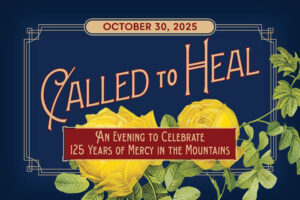No summer season is complete without a good cookout, time spent outdoors — and the use of dazzlingly dangerous explosives. But just as quickly as they light up the night sky, fireworks can turn a joyful celebration into a panicked frenzy or painful memory when someone gets injured (or something gets destroyed) in the process.
Every Fourth of July, urgent care centers and emergency rooms are full of stories of failed firework fun — but, this year, Mercy Urgent Care wants to get ahead of the game, ensuring that your Fourth doesn’t end in a trip to your nearest clinic.
First of all, before using fireworks, make sure they are permitted in your state or local area. North Carolina, in particular, is notoriously strict on the use of common fireworks, including all types of aerial displays, including roman candles and bottle rockets. Other illegal fireworks in North Carolina include firecrackers, snakes, airplanes and other ground-spinners.
Fireworks that are legal in North Carolina include poppers, sparklers and fountains. Essentially, if it leaves the ground, you shouldn’t have it at your backyard barbecue in the state of N.C.
But just in case you come into contact with too powerful a popper, here are some tips and recommendations to ensure a safe-yet-sparkly Fourth:
- Do not allow young children to play with fireworks — and, yes, that means sparklers too. Often considered a “safe” firework for kids, sparklers burn at extremely high temperatures (1,200 degrees and up) and should be not be handled by young children, who may not understand the danger or act appropriately while holding a sparkler or in an emergency situation. According to the Federal Emergency Management Agency, sparklers account for 1/4 of all emergency room or urgent care fireworks injuries.
- Closely watch your teens and preteens when explosives are involved. Older children should only use fireworks under close adult supervision. Do not allow any running or horseplay in the vicinity of fireworks.
- Crouch, don’t lean over. Never have any portion of your body directly over a firework while lighting.
- Check your surroundings for flammable material. Set off fireworks outdoors in a clear area, away from houses, dry leaves or grass and other flammable materials.
- Think ahead. Be prepared. Keep a bucket of water nearby for emergencies and for pouring on fireworks that fail to ignite or explode.
- Don’t mess with the duds. If it’s not working properly, that means it may be dangerous. Do not try to relight or handle malfunctioning fireworks. Soak them with water and throw them away.
- Double-check your surroundings one last time before lighting the fuse. In addition to structures, dry leaves and grass, be sure other people are out of range before lighting fireworks.
- If it can tip over, shatter or produce shrapnel, it’s not a launch pad. Never light fireworks in a container, especially a glass or metal container.
- Keep unused fireworks away from firing areas. And, when not in use, store fireworks in a cool, dry place — or check for special storage instructions.
- Always purchase fireworks from a lawful, licensed business. Never, ever experiment with homemade fireworks.
And, aside from firework fun, be sure to keep grills safe by:
- using your grill away from your home and deck railings and away from any overhangs or tree branches.
- opening the hood of gas grills before lighting.
- ensuring the grill’s trays and catches are free of grease, fat buildup and other flammable debris.
- keeping a 3-foot kid- and pet-free zone around the grill at all times.
Be safe, Western North Carolina — and have a happy, healthy Fourth of July!

